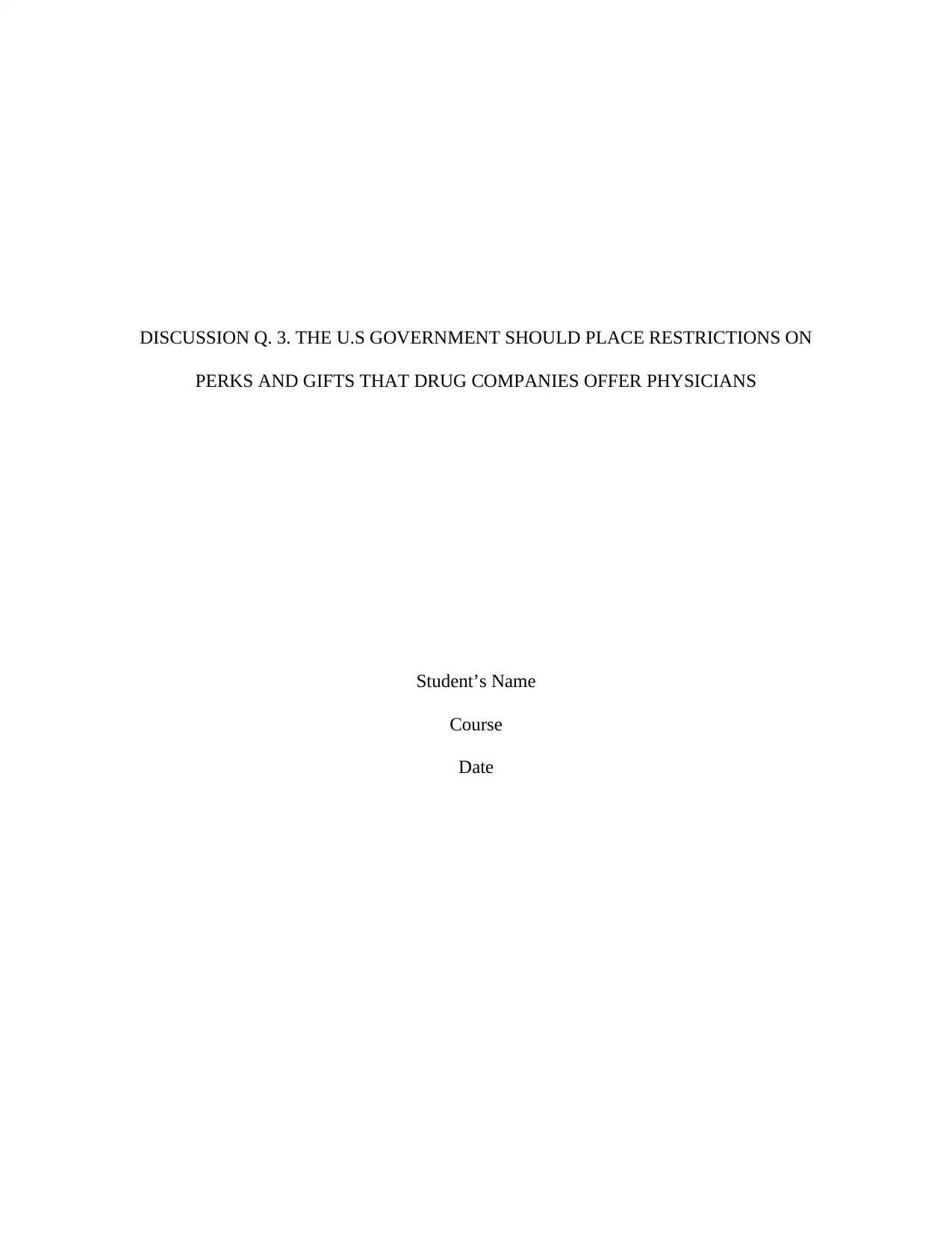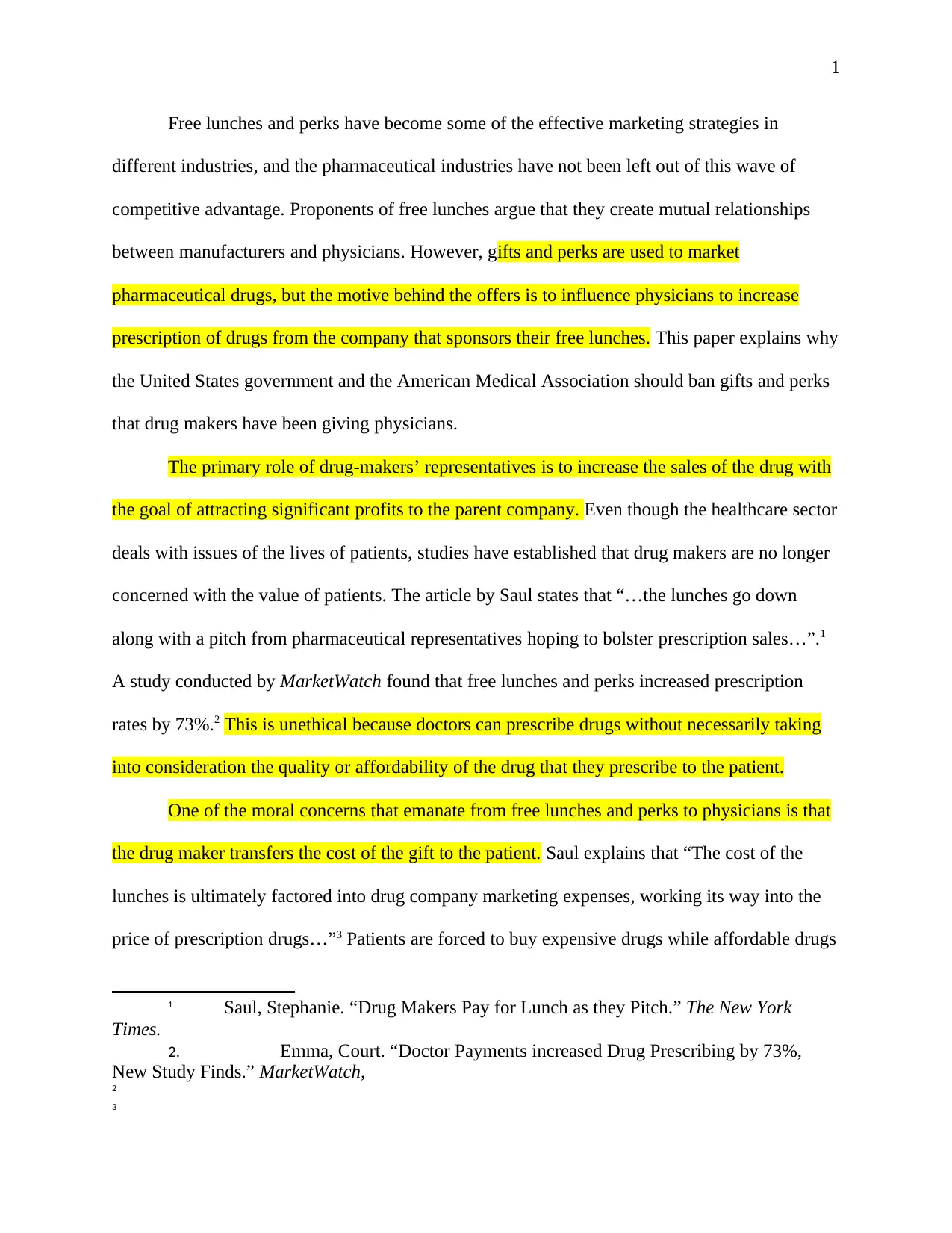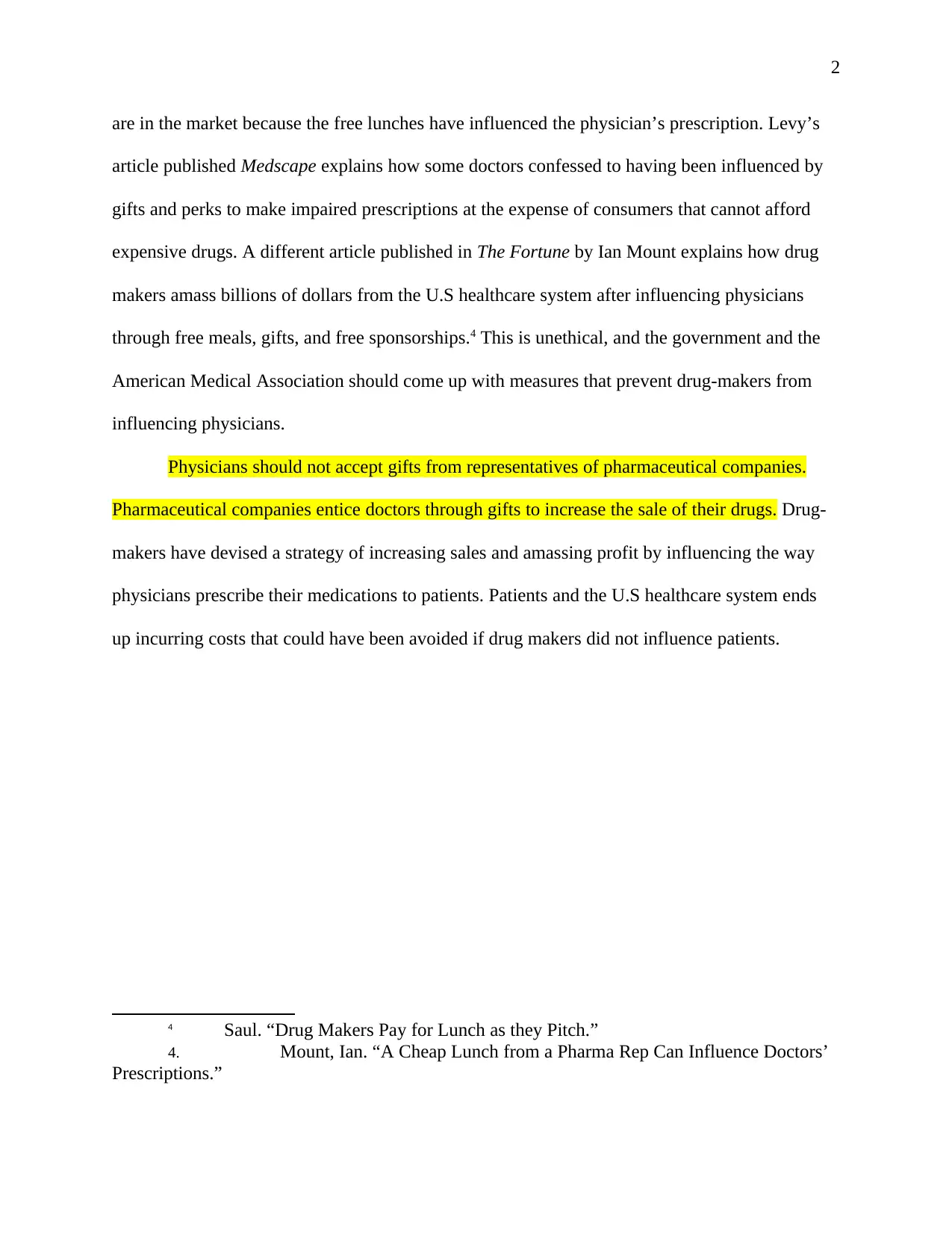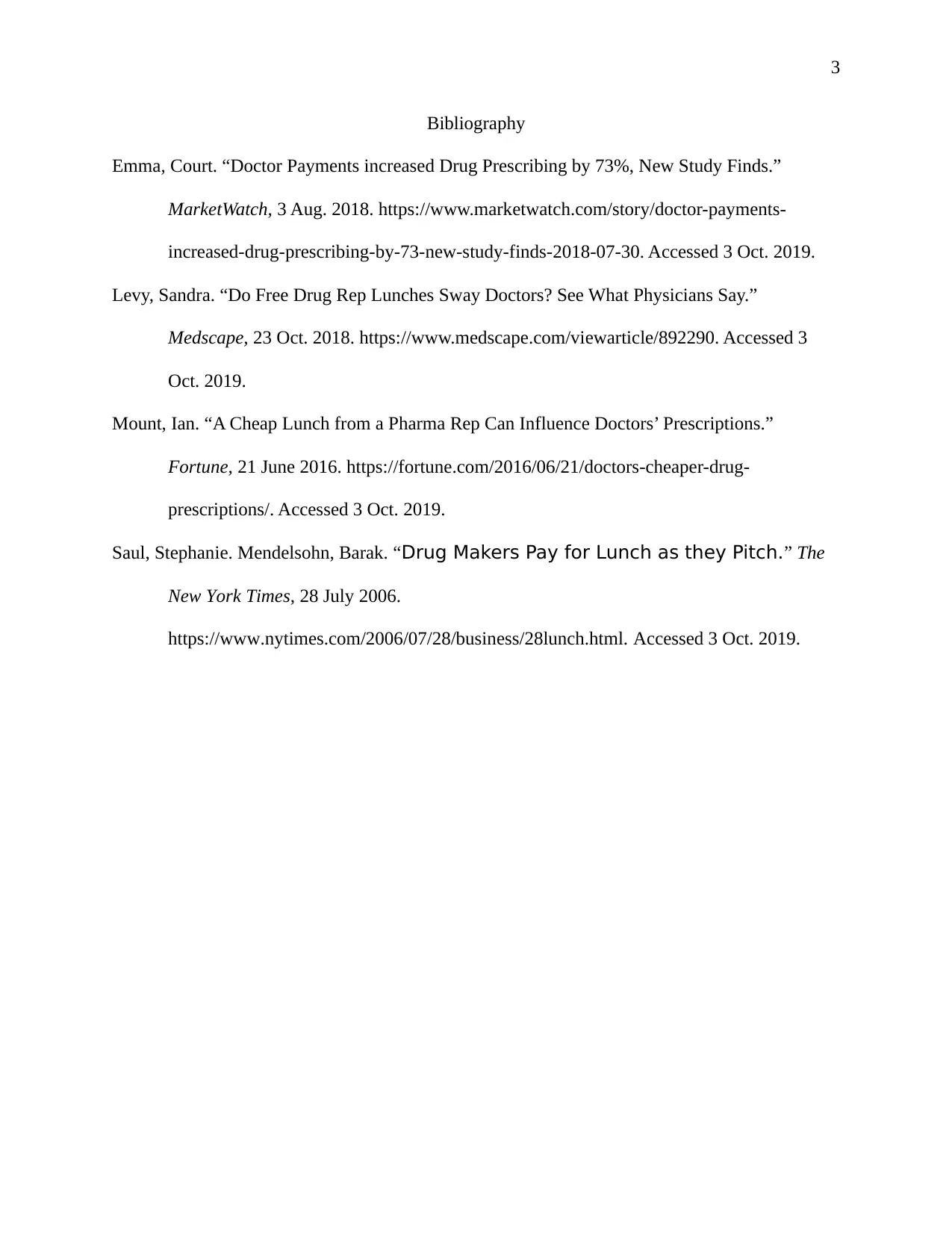Should the US Government Restrict Drug Company Perks for Physicians?
VerifiedAdded on 2022/10/01
|4
|643
|145
Discussion Board Post
AI Summary
This discussion board post examines the ethical considerations surrounding gifts and perks offered by drug companies to physicians, focusing on the question of whether the U.S. government or the American Medical Association should impose restrictions. The student's response analyzes the impact of free lunches and other incentives on physician prescribing practices, drawing on research that shows a correlation between these perks and increased prescription rates. The post argues that such practices are unethical, as they can lead to physicians prescribing drugs based on the incentives rather than the patient's best interests, potentially increasing healthcare costs and limiting access to more affordable medications. The student supports their position with examples and quotes from the provided readings, emphasizing the need for regulations to ensure that patient care remains the primary focus and to prevent pharmaceutical companies from unduly influencing medical decisions. The author suggests the government and medical associations should develop measures to stop drug-makers from influencing physicians with perks.
1 out of 4






![[object Object]](/_next/static/media/star-bottom.7253800d.svg)